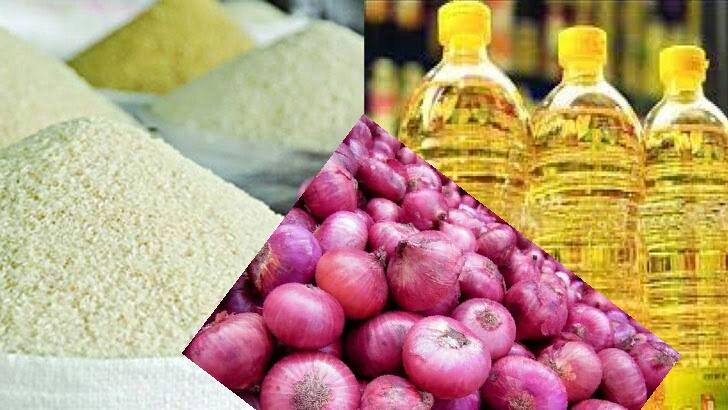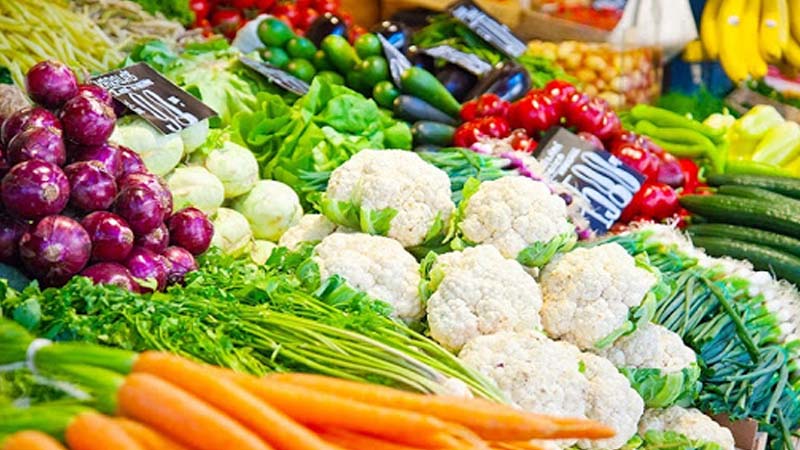The prices of essential commodities, including rice, edible oil and red lentil, have increased by up to 30 per cent over the past one year, severely affecting the country’s fixed-income people amid the coronavirus pandemic.
The continuous hike in the prices of rice and edible oil are particularly hurting the consumers as the government departments concerned have failed to effectively intervene in the market, said consumers and consumer-rights activists.
After the COVID-19 outbreak in the country in March 2020, the prices of rice started to increase on the city market putting the lower-income people in severe hardship amid the loss of their income due to the coronavirus outbreak.
The prices of edible oil have also witnessed steep rises over the year.
SM Nazer Hossain, vice-president of Consumers Association of Bangladesh, blamed the failure of the government agencies concerned in monitoring the market for the rising prices.
While the government fully depends on 5-6 businesses for the supply of essential commodities, the government organisation Trading Corporation of Bangladesh h0as not been capable of intervening in the market, he said.
According to government data, the price of unpackaged soya bean oil has spiked by 35.56 per cent to Tk 125 a litre from Tk 88 over the period.
The price of packaged soya bean oil has gone up by 35 per cent to Tk 140 a litre from Tk 105.
The price of palm oil, the data shows, has in the meantime has soared by 47.62 per cent to Tk 110 a litre from Tk 75.
Citing the edible oil price hike on the international market, the commerce ministry has recently allowed traders to raise the prices of soya bean and palm oil.
Thus the prices of rice have increased by up to 24.32 per cent while edible oil has become significantly dearer as its prices have gone up by up to 47 per cent over the past one year.
Although the government has estimated surplus outputs of both boro and aman paddies, it could not keep the prices of rice stable even after importing the commodity, said consumer-rights activists.
The commerce ministry has repeatedly announced that the prices of edible oil, red lentil, sugar and gram will remain stable as the stock of the commodities in the country is sufficient but the announcement has failed to give the consumers any respite from the price-hike pinch.
Consumer-rights activists blame the lack of government market-monitoring for the unusual hikes in the prices of essential commodities over the year.
They fear that the prices of daily essentials will further increase prior to and during the month of Ramadan as only few private-sector players control the market.
In August 2020, the Bangladesh Rice Research Institute in a report said that there would be more than 55 lakh tonnes of surplus rice after meeting the local demand at the end of November in that year.
Despite the BRRI prediction of 55 lakh tonnes of surplus rice at the end of November, the government in December decided to slash the duty on rice import to 25 per cent from 62.5 per cent to keep the supply and price of the staple food stable on the local market.
After the opening of the rice import to the private sector in January, the approved rice-import quantity as of March 16 this year stood at more than 12 lakh tonnes while the prices of the commodity have continued to increase on the local market.
‘We have approved the private sector to import 10.60 lakh tonnes of boiled and two lakh tonnes of atap rice and hopefully the price of rice will remain stable on the local market in coming days,’ food minister Sadhan Chandra Majumder told New Age on Thursday.
He said that the buffer stock of rice would improve shortly as the government decided to import 10 lakh tonnes of rice and deals for eight lakh tonnes had already been finalised.
According to ministry data, the buffer stock of rice stood at only 5.21 lakh tonnes as of March 15.
The private sector import of rice during the July–March 15 period of the current financial year was 3.58 lakh tonnes while the government import in the period was 1.42 lakh tonnes, official data shows.
‘The price of rice has increased a little in recent times due to a slow import as importers were waiting for further duty cut but the government has decided against fresh reduction in the import duty on rice so that farmers get fair prices for their boro crop which will be harvested in May–June,’ the minister said.
According to TCB data, the prices of coarse rice increased by 24.32 per cent to Tk 44–48 a kilogram in March this year from Tk 34.40 in the same month last year.
The price of fine rice has gone up by 8.70 per cent while medium-quality rice has seen a 6 per cent increase over the past one year, official data show.
About other essential commodities, commerce minister Tipu Munshi has recently said that the stock of edible oil, red lentil, su














